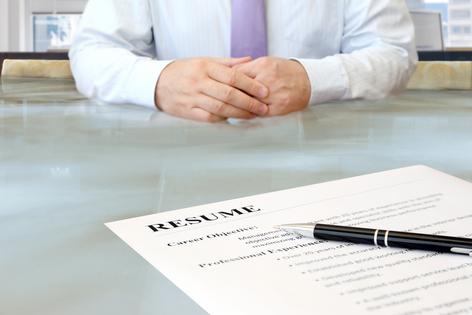Jill On Money: What to do if you lose your job
With the labor market downshifting and many industries consolidating, many workers feel like a job loss is just one day away.
To help prepare — or if tomorrow is your unlucky day — here’s what to do if you lose your job:
Even if you weren’t crazy about your job, losing it still can be disarming and emotionally rough. Give yourself some grace but not too long — we have much to accomplish!
As the shock of the news moves through your body, focus on health insurance and unemployment benefits. If you received health coverage through work, contact HR to learn about COBRA. This rule allows you to keep your coverage for up to 18 months, but you have to pay for it on your own, which is usually expensive.
Alternatively, if you leave your job for any reason (even if you quit or get fired) and lose your health insurance, you may qualify for a Special Enrollment through the Affordable Care Act. To do so, you need to apply within 60 days of losing your job-based coverage.
Next, file for unemployment benefits ASAP. Every state has different rules and some have waiting periods, but the general gist is that you must be ready, willing, and able to work. If you are eligible, your first payment will generally be made a few weeks from the time your claim is completed and processed.
Review how much money you have in your emergency reserve fund and how much money you owe. Before you miss a single payment, contact your creditors, including credit card companies, mortgage lenders, student loan servicers — they'd rather work with you than chase you. Many have hardship programs that might be useful for you during this (hopefully short) period of time.
When you leave a job where you have contributed to a retirement plan, there are a few different options to consider:
(1) If your old company allows it, keep the money where it is. This is an easy way to proceed, especially if the plan is one that offers low-cost investments.
(2) Roll over the old retirement money DIRECTLY into a new company’s plan. This option might work well if you line up a new job quickly.
(3) Open an IRA Rollover account or a Roth account and move the old plan money directly into a new account.
There is a fourth option, but it should only be seen as a last resort. You can cash out an old retirement plan, but doing so means that you’ll pay ordinary income tax plus a 10 percent penalty if you're under age 59½. Unless you are facing a grim choice (think buying groceries or imminent eviction), avoid cashing out.
Update that LinkedIn profile, dust off your resume, and prepare to network like your financial life depends on it—because it does. Reach out to former colleagues, industry contacts, even that person you met at a conference two years ago. A warm introduction beats any algorithm.
That said, if you haven’t done this in a while, know that when sending out resumes and using job sites, generic applications get filtered out fast. Mirror the job posting’s language in your resume and cover letter and use the exact skills and qualifications they list, assuming you actually have them. And like a tough restaurant reservation, you need to be on top of the process by applying within the first 24-48 hours of a job posting going live.
_____
_____
========
(Jill Schlesinger, CFP, is a CBS News business analyst. A former options trader and CIO of an investment advisory firm, she welcomes comments and questions at askjill@jillonmoney.com. Check her website at www.jillonmoney.com)
©2025 Tribune Content Agency, LLC















Comments